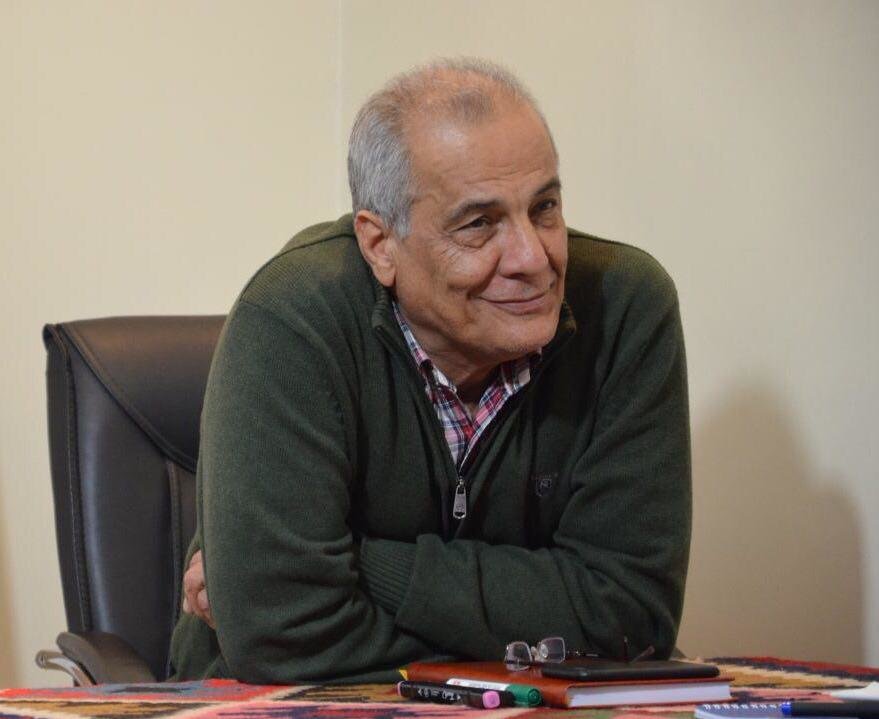EU will strongly resist Trump’s rhetoric: scholar

TEHRAN - A prominent scholar foresees a “serious resistance” against Donald Trump’s rhetoric and populism by the European Union.
“It can be predicted that the EU will try to impose a code of behavior on the new U.S. president,” Modjtaba Sadria told the Tehran Times in English on Monday.
Sadria said that the U.S. needs “new way to talk and interact” with other countries and this will lead to a transformation of Trump’s discourse after he officially takes office in January.
On the surprise victory of Trump in the November 8 elections, he said, “We have to consider two different perspectives and both of them are quite important. One aspect of this election is the personality of Donald Trump and the other is the political situation of the U.S.
“I think more than 90 percent of comments have been about Trump’s personality. In recent political life of the U.S., including at presidential level, we have witnessed personalities who are more or less like Trump such as Ronald Reagan and George W. Bush.”
He added personalities of such political figures indicate a change in the U.S. political atmosphere.
Sadria said that Trump is taking the helm at a time that the U.S. is no longer viewed as a “superpower”.
“If you consider the current situation in West Asia, you can see the U.S. policies as a superpower are not going very well and the question is that why the U.S. cannot do what it want to do.
“In my opinion, this is a new chapter in the world situation. I think we have reached a completely different situation compared to the time when the U.S. carried out attack on Iraq in 2003 when the U.S. could more or less create global front for interventionism.”
The U.S. sought to impose the “policy of interventionism” on the world’s leaders at that time, he said.
Sadria said the U.S. attack on Iraq proved “catastrophic” for the whole world.
‘U.S. no longer has muscles’
He added once again Americans want to show their power to the world but they lack the “muscle”.
“Now, we are facing the discourse of the U.S. at the recent presidential election which indicates that the U.S. wants to show muscles, but it does not have muscle. I think the U.S. cannot do what it could do at the time of attack on Iraq,” he commented.
The scholar went on to say that the world is facing “major potential economic crisis” and cannot afford “major military adventures”.
“No country can wage a war with empty pockets. Given the current economic crisis, the answer cannot be war. The world cannot pay to go through a third world war,” Sadria remarked.
“So, basically I think it is a new world that needs new games and new ways of playing.”
Sadria said, “We are witnessing decline of hegemony of the U.S.”
‘World is approaching new Yalta’
Sadria argued that the world is entering a “new Yalta” instead of a third world war.
“All the major powers, and there is no more one superpower, are being forced by lack of other choice to create a kind of consensus for their major intervention. I think that if global politics is going to a new Yalta, we will have a new agreement among Russia, the U.S. and the EU.”
The scholar also said Trump needs to change his rhetoric to move towards a consensus with the EU and Russia.
At Yalta Conference in February 1945 during World War II, U.S. President Franklin D. Roosevelt, British Prime Minister Winston Churchill, and Soviet Premier Joseph Stalin made important decisions regarding the future progress of the war and the postwar world.
‘Americans wrongfully consider election of Trump as way to express anger’
Sadria also said Trump is “representative of anger of the U.S. society” which “wrongfully” considers election of Trump as the way to “express their anger”.
“The anger of the majority of the U.S. people to witness concentration of wealth in the hands of a very few, and wrongly or rightly Hillary Clinton was considered as representative of those few,” he pointed out.
“I think Trump’s populist discourse will not improve situation in the U.S.” However, he said, Trump is also representative of a few. “I think Trump’s populist discourse will not improve situation in the U.S.”
Elsewhere, Sadria described the nuclear deal between Iran and the 5+1 group (the U.S., Britain, France, China, Russia and Germany) as good for both.
He said that Trump will not have the power to violate or review the deal, officially called the Joint Comprehensive Plan of Action.
Iran and the six major powers finalized the text of the JCPOA in July 2015 which took effect in January 2016.
In a speech in March to a conference of the American Israel Public Affairs Committee (AIPAC) in Washington Trump claimed that his “number one priority is to dismantle the disastrous deal with Iran”. However, he later backed down from his rhetoric saying it was difficult to violate a deal which has been approved by the UN Security Council.
EU foreign policy chief Federica Mogherini said on November 9 that the JCPOA is a “multilateral agreement” and that she is tasked to guarantee its full implementation.
EU foreign ministers also issued a statement on November 14 reiterating the 28-nation bloc’s “resolute” commitment to the implementation of the nuclear agreement.
Leave a Comment